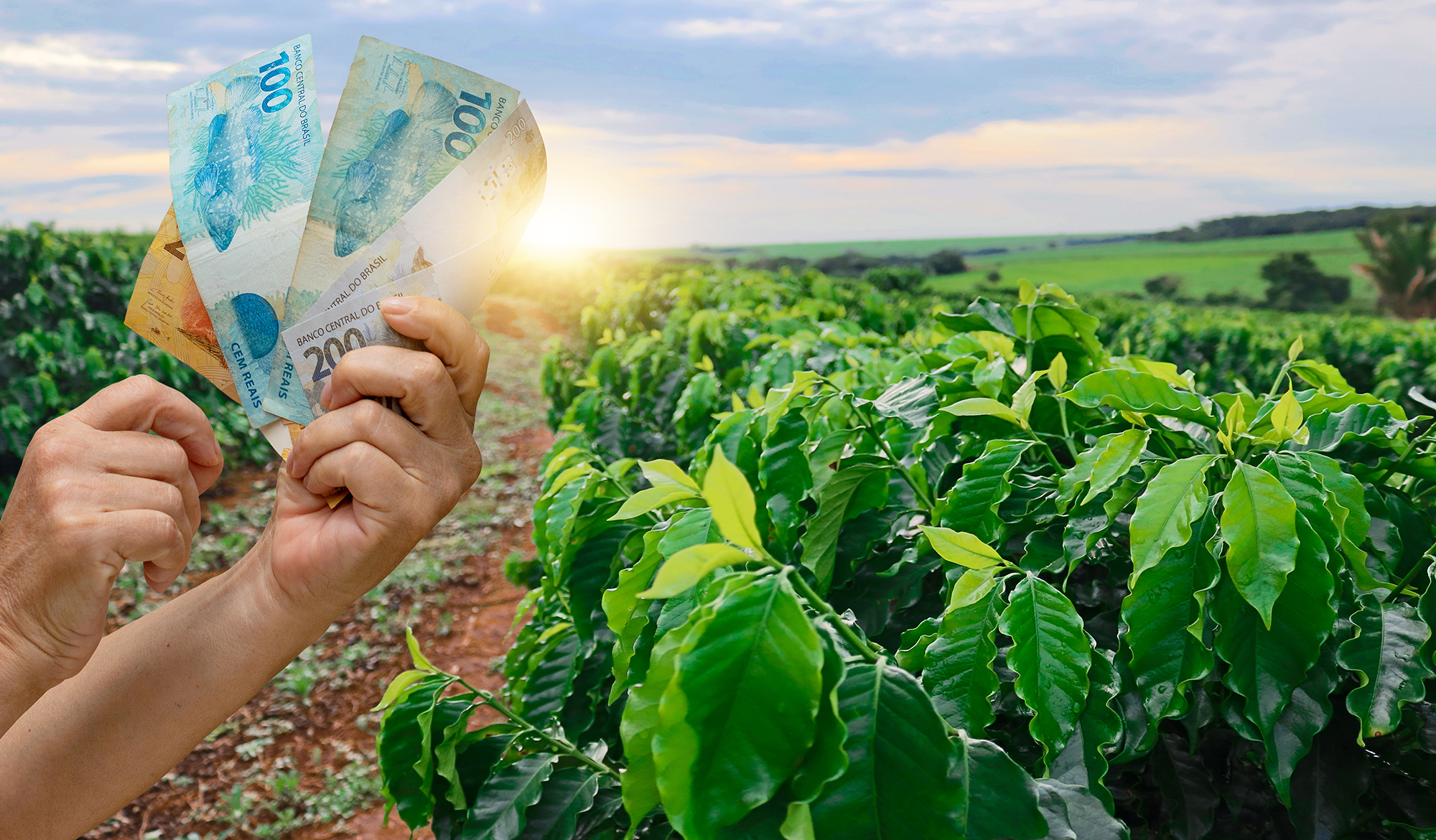The new Brazilian agricultural year, which starts on July 1st, will be supported by a rural credit policy that focuses on promoting growing practices that meet ESG criteria, particularly the environmental pillar.
It is an important incentive for adopting technologies and good field practices, especially by small and medium growers, aiming at the development of growing systems that are more resilient to climate change and generate positive results for society.
This Greener Crop Plan strengthens the sustainability of Brazilian coffee growing, a core activity of many family farmers. According to the 2017 Agricultural Census, conducted by the Brazilian Institute of Geography and Statistics (IBGE), 78% of coffee growers in Brazil are family farmers. They qualify for the National Program for the Strengthening of Family Farming (Pronaf) credit lines.
With access to special interest rates (up to 65% lower than other funding options), these coffee growers get an additional boost to advance in sound environmental practices with the Pronaf Bioeconomy, which now makes credit available to implement agroforestry systems and the production of bio-inputs.
The already internationally recognized National Plan for Low Carbon Emission in Agriculture (ABC) also thrived in the current Crop Plan. The volume of resources doubled compared to the previous year, reaching R$ 5.05 billion, showing the prioritization of investments in good practices and science-based technologies that generate positive environmental results.
Besides the implementation of crop-livestock-forest integration systems, agroforestry systems, direct planting, and biological nitrogen fixation, among others, the ABC Program will also – starting this month – finance the production of bio-inputs, the generation of renewable energy on rural properties for self-consumption, and the adoption of conservationist practices for natural resources, including the correction of soil acidity and fertility.
The 2021 Crop Plan also made agricultural funding greener, authorizing growers to finance the acquisition of inputs for restoration and recovery of native vegetation areas in rural properties and bio-inputs, including inoculants for biological nitrogen fixation.
In addition to the official rural credit policy, alternative sources for investments with ESG criteria are also growing in Brazil. In a recent report, the international Climate Bonds Initiative (CBI) points out that the issuance of green, social and sustainable bonds reached a total of US$ 10.8 billion from May 2015 to February 2021. The first two months of this year show a particularly notable expansion.
Regulatory advances such as creating Investment Funds in Agro-industrial Productive Chains (Fiagro) and the Brazilian Central Bank’s Sustainability Agenda proposal, currently under development, tend to foster the expansion of the Brazilian sustainable securities market.
The more targeted funding to foster ESG practices consolidates the commitment of Brazilian agribusiness to advance the development of resilient and sustainable productive landscapes that contribute to global food security, the country’s social and economic development, and the reduction of greenhouse gas emissions.
The success of this credit policy also involves training programs for growers, aiming at the adoption of good practices and technological innovations. Measuring the progress achieved in the field is another fundamental aspect for credibility in publicizing the sustainability differentiators of Brazilian agriculture.
The Brazilian Coffee Exporters Council (Cecafé) has contributed to projects in social responsibility and sustainability, strengthening the adoption of ESG practices in the Brazilian coffee industry.
In tune with the wishes of the international coffee consumer market, Cecafé encourages digital inclusion and trains small farmers and rural workers to develop a more sustainable coffee growing through its Informed Producer project.
The Informed Producer is an important tool to add to public administrators’ efforts, helping spread the good practices and technologies that are being encouraged by the new Crop Plan.
Cecafé is also developing a pilot project to quantify GHG emissions and removals in the three main coffee-growing regions of Minas Gerais. The focus is to evaluate the state of the art of low-carbon coffee growing, in line with the ABC Program.
This initiative will contribute to greater transparency and credibility of communications about the sustainability of the Brazilian coffee industry and the improvement of public policies to benefit all segments of the production chain.
Sustainability is already the guiding principle for the continuous evolution of the coffee-growing chain. The focus of public policies to reinforce the adoption of ESG practices and the partnership with the private sector for its wide-use in the field, together with the joint communication work aimed at promoting the image, will ensure that the country continues to meet, with excellence, the growing global demand for Brazilian coffees.
Silvia Pizzol
Cecafé’s Sustainability Manager



Leave A Comment